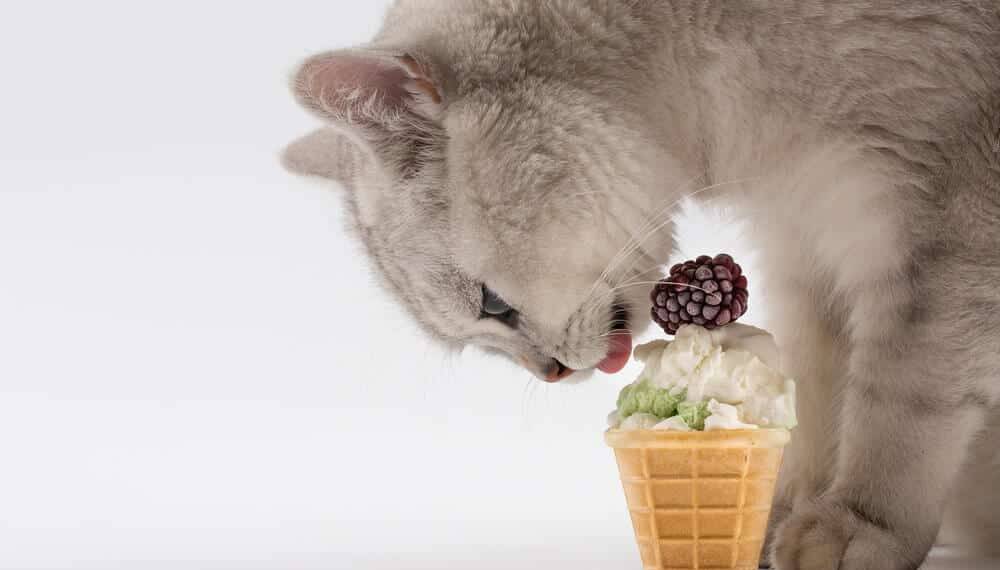Can Cats Eat Ice Cream?
Researches have shown that Cat can have similar nervous system as humans and most of the cats are believed to be lactose intolerant so, the answer to can cats eat ice cream? Is feeding your cat or kitten ice cream in large amounts isn’t a good idea. They cannot eat ice cream because ice cream is made from milk, a substance that even little Furry can’t digest and causes her severe stomach pain and diarrhea. If you give your cat milk, they can digest it and grow up well.
Other products cats cannot have
Though there hasn’t been extensive research about cats nervous system or digestive system, a few doctors who have knowledge about this concept have said that cats can have milk to an extend their bodies do not support milk products that much, products such as ice cream, cheese, yogurt, butter can harm their stomach and cause pain to them.
There is also risk of infections and diarrhea involved if you plan on feeding your cat any milk products. As we have already mentioned, cats are lactose intolerant and should not have milk in their food. Adult cats with lactose intolerance are like many people who cannot drink milk without getting stomach problems. This means that if you do not have clean, sloppy diarrhea, it is best to keep your cat away from milk.
Also Read : The Puzzle- which glass has more water?
Things you can do to feed them ice cream without actually feeding them ice cream
When you add milk, look for cat’s milk that is free of anything that contains extra lactase enzymes, or buy low-fat, low-sugar milk or goat’s milk from pet stores. Whatever type of milk, limit the intake of your cats to a small amount.
The best way to give ice cream to your cat without worrying about contamination of the litter box is to use goat’s milk ice cream. You can also make ice cream for cats by frothing cat milk (not normal milk, but kitten milk) in cubes or ice cubes. If you give your cats milk or some other substance, remember: It can be hard on the stomach of your cats.
Also Read: How Many Cups in a Pound of Dog Food and Precautions
Problems faced if the intake of products is done excessively
In normal cats, if they eat too much ice cream, it can disturb their digestive tract and cause them gastrointestinal problems like diarrhea. Before we head to the deeper question of whether or not ice cream is good for your cat, you should know that your cat will not get sick if it eats only a bit of ice cream. If you find it surprising that cats are attracted to treats like ice cream because they don’t taste the sweetness most people crave, you need to consider the ingredients in ice cream. In fact, milk to feed the cat or dairy products like ice cream is a bad idea.
If you think about the dairy products you eat, you may have noticed that your cat always asks to lick all of the milk and seems to ignore your fat-free milk. Like humans, cats can have harmful effects by consuming too much sugar. Your cats are lactose intolerant, which means that even a tiny milk or cream can cause problems.
The American Society for the Prevention of Cruelty to Animals states that dairy products are not toxic to cats, but can lead to a lot of unnecessary complaints. Experts warn that cats with lactose intolerance can lead to gastrointestinal problems, especially diarrhea. In order to prevent your cat from developing health problems, it is important to prevent your cat from eating human food. Feeding cat food with milk or sugar, such as ice cream or popsicles, has no health benefits and can lead to side effects.
Also Read : Citizens to follow of States with stay at home orders








